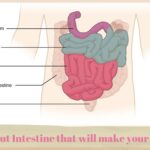Amino acids’ function
Amino acids’ function, their types, and the essential amino acids are explained in this article. An amino acid is a molecule that is combined with other molecules to create proteins. Proteins and amino acids are the basic components of all living things. As a result of protein digestion or decomposition, amino acids are produced. In order to aid the body, the human body employs amino acids to create proteins. Amino acids are essential for the human body’s ability to digest food, grow, repair bodily tissue, and perform a variety of other activities. The body’s ability to use amino acids for energy is also well documented. Essential amino acids, non-essential amino acids, and conditional amino acids are the three categories of amino acids recognised by the scientific community. Protein-rich meals including meat, fish, and soy provide a high concentration of amino acids. Certain amino acids can also be used as a supplement to help with physical performance or mental well-being.
The amino acids that the body cannot create on its own are known as essential amino acids. As a result, they must be obtained from food consumption. Valine, histidine, threonine, leucine, tryptophan, isoleucine, lysine, phenylalanine, and methionine are the nine essential amino acids that are required by our human body. We may make the amino acid in our bodies even if we do not consume it through our diets, which is known as non-essential amino acids. An example of a non-essential amino acid is proline. Other non-essential amino acids include asparagine, tyrosine, aspartic acid, glutamic and glutamic acid acids, as well as cysteine, glutamine and arginine. Unless you’re sick or under a lot of stress, conditional amino acids aren’t generally a need. Examples of conditional amino acids encompass serine, glycine, glutamine, cysteine, ornithine, tyrosine, proline, and Arginine. Amino acids’ function includes them being nitrogen-storage plants or facilities. To maintain a healthy body, you don’t need to take necessary and non-essential amino acids at every meal. We no longer care about eating a single plant item at a meal, but we no longer worry about eating a single protein at a meal, such as beans and rice. Instead, we focus on the overall quality of the diet.
Animal proteins, such as meat, eggs, and poultry, are the richest providers of these essential amino acids. It is possible to get all nine required amino acids from plant foods such as soy products like edamame and tofu. As a result, they are referred to as “complete” protein sources. Amino acids’ function entails the production of protein building components. Only L-amino acids are polymerised to create proteins, despite the fact that both D-amino acids and non-L-amino acids can be present in natural environments. Building muscle and maintaining a healthy immune system are two of the many functions that amino acids serve in the body after protein consumption. A few non-essential amino acids are designated as “contingent.” In some cases, they are important such as during disease, pregnancy, infancy or trauma. For instance, arginine is a non-essential amino acid, but your body cannot produce enough of it while you’re recovering from a catastrophic injury or battling illnesses like cancer.
Furthermore, some amino acids, such as glycine and arginine, are regarded conditionally essential while pregnancy since a pregnant woman needs more of these amino acids to sustain both her own and the fetus’s health. Amino acids’ function involves operating as buffers in solutions as amino acids are amphoteric. They withstand fluctuations in pH. They do this by contributing H+ ions when the pH rises and absorbing H+ ions as the pH falls. Supplementing with specific necessary amino acids may boost mood, promote exercise performance and recuperation, and improve health outcomes post-surgery. Protein synthesis, tissue healing, and nutrition absorption are all tasks that they play in your body. Some may also aid in muscle preservation, post-surgery rehabilitation; also, they enhance sleep, sports, and mood effectiveness. Most people may achieve their daily demands by eating a healthy, balanced diet because these important components are available in many animal and plant-based foods. If necessary, you might also take crucial amino acid supplements. The amount of amino acid supplements you take varies on the type of amino acid you’re taking and why you’re taking it. Consult a skilled healthcare expert if you’re interested in taking necessary amino acid supplements.



